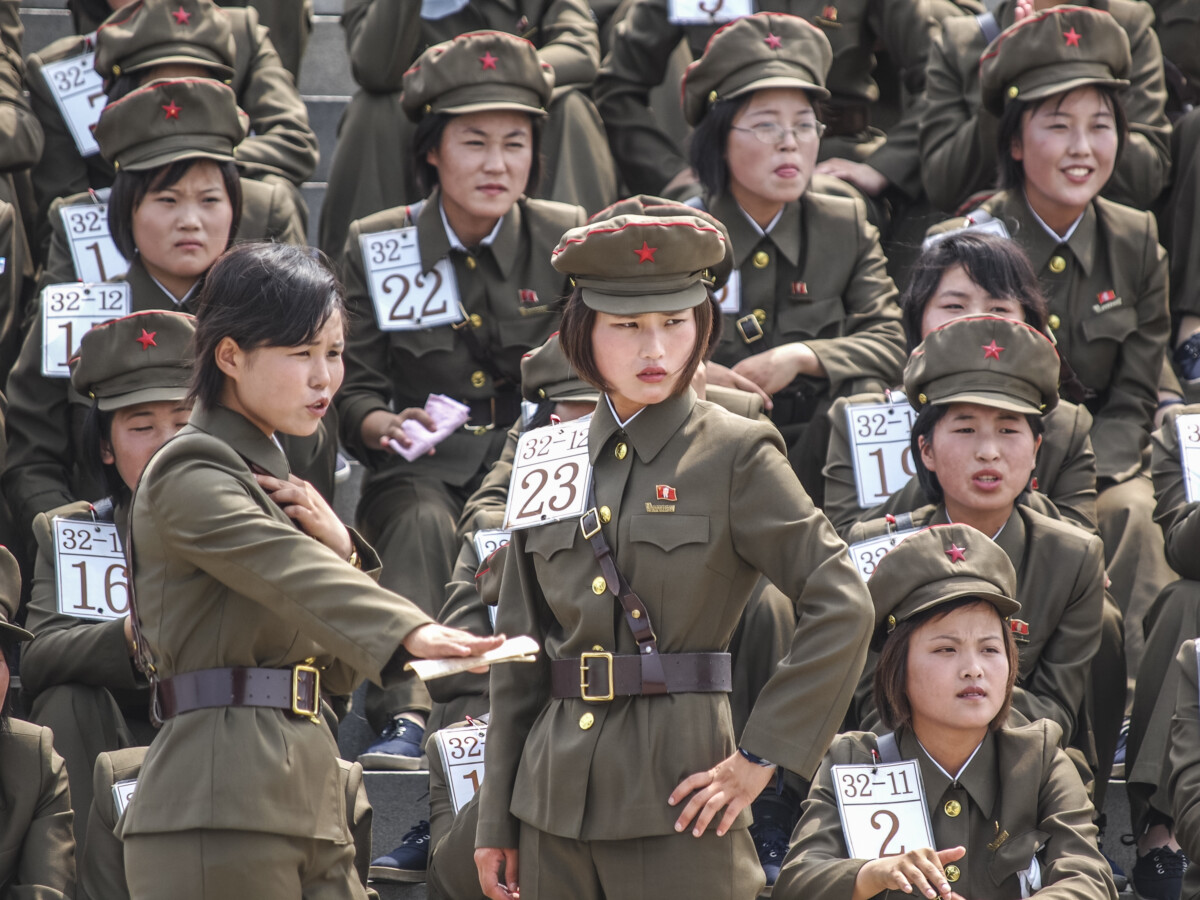The declining value of Party membership for women

Do women in North Korea go to the military? I am often asked this in South Korea. Yes, they do, I tell people. They are subject like men to mandatory national service.
When they graduate from high school, women – especially if they are from rural or ordinary families – are expected to enlist, often with the end-goal after they have completed their service of joining the Workers’ Party.
However, this Party membership is no longer viewed in the way it used to be. It no longer represents stability. It no longer represents opportunity. What was once seen as a gateway to advancement has become a burden.
The regime promotes the idea that military service is the highest form of devotion to the nation and to the ruling Kim family. Enlistment is portrayed as sacred. It is presented as a personal offering to the Supreme Leader. But behind this narrative lies a harsher truth: military life is defined not by honor but by relentless labor, deprivation, and the stripping away of personal freedoms. The promise of dignity is replaced with reality of exploitation.
I grew up in that environment, surrounded by women who joined the military to prove their loyalty. The reality was harsher than any of us could have imagined.
Our days began with endless marches. Then there was endless farming and construction work. Actual combat training was minimal compared to this physical toil.
Service stretched seven to eight years. During this time, women lost their youth. They were forbidden from marrying, or even expressing individuality through makeup or clothing. Many endured, clinging to the belief that Party membership would eventually bring a better life.
But the reality after discharge proved even more punishing. Since 2020, a directive that “Party members must lead by example” has forced women to abandon domestic life and report to factories, mines, and workplaces.
Even mothers caring for children were suddenly ordered to work. Refusal meant being branded “ideologically unfit,” subjected to public criticism, or sent to disciplinary camps.
Husbands and families could suffer consequences too. These women labored without pay or rations, and were told to work harder simply because they were Party members. Their sacrifices were met not with recognition but with hunger and exhaustion.
This cycle breeds despair. Women who gave their youth to the military are again trapped in hardship because of Party membership. What was once a path to success is now seen as a curse. “Being a Party member means more suffering,” people whisper.
As a result, young people, often called the MZ generation, are increasingly refusing Party membership. They understand now that joining means surveillance, demands, and loss of freedom.
Membership is not automatic. It requires bribes and recognition from superiors. It is not possible without money. When it is suggested, many now decline politely, saying, “I’m honored, but I’m not yet qualified,” to avoid the financial and ideological burden.
This quiet refusal signals a profound shift. The blind loyalty that was once the norm, is now eroding. People are beginning to question the system, even if only in private. It is the first step toward internal resistance.
Watching discharged female Party members fills me with sorrow. They tried to live honorably, but their sacrifices were twisted into tools of control. The slogan “Party members must lead” is not a policy for the people. It is a mechanism of exploitation.
North Korean women are not weak. They are resilient, diligent, and willing to sacrifice for their families. But their strength is manipulated, not respected. Many feel the injustice deeply but cannot speak out. One wrong word can condemn an entire family to a political prison camp, or worse. Silence is the strategy for survival. Grievances are carried in secret, hidden beneath a veneer of compliance.
This story is heavy, but it reflects the reality today. Women who gave their youth to military service are now forced into unpaid labor, with no hope in sight. Their voices matter, yet they remain unheard. Statistics and headlines cannot capture their suffering. Only those who have lived it can reveal the truth.
The international community must act and monitor abuses, support defectors, and protect testimonies. Solidarity is not symbolic. It is essential.
The price of Party membership may have become unbearable, and yet this burden contains the possibility of change. If the world listens carefully, if it stands with those who resist quietly, then the voices of these women can become the beginning of a freer tomorrow. Their unending service must finally give way to unending freedom.
- Can ordinary joy awaken the people of North Korea? - February 19, 2026
- Remembering the Yeonpyeong Island bombardment - February 13, 2026
- The people at the front are the poorest: The life of a Party member - February 9, 2026

